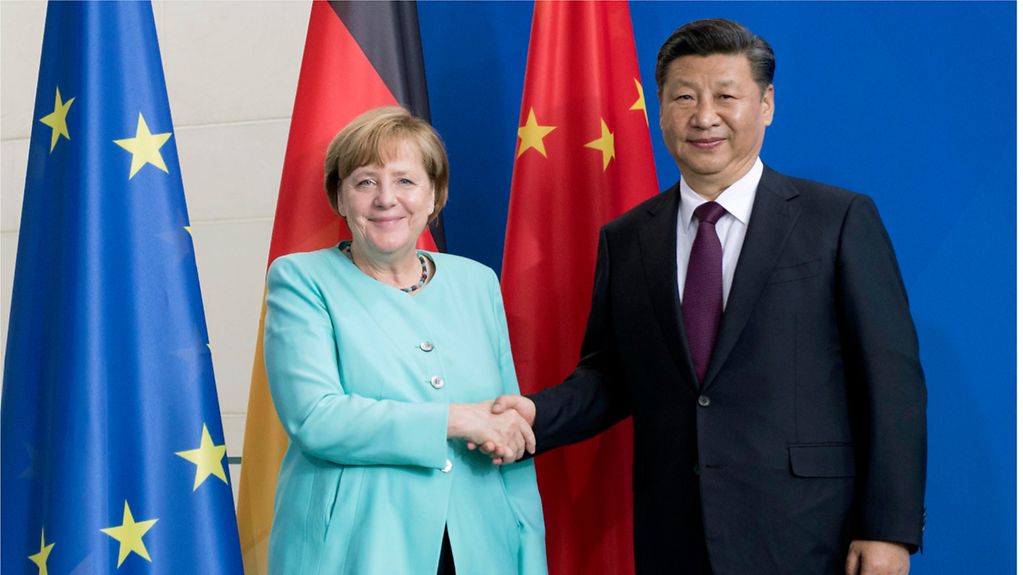Seven facts on EU-China relations
China is an important partner for the EU on climate protection and other issues for the future. It is a competitor in trade and technology. However, the country is also a systemic rival on issues of governance, values and multilateralism. A look at the facts.
2 min reading time

Federal Chancellor Angela Merkel and Chinese President Xi Jinping during a visit to the Federal Chancellery in 2017.
Photo: Bundesregierung/Bergmann
At the special meeting of EU heads of state and government on 1 and 2 October, EU-China relations will also be on the agenda.
- China and the EU work together on climate protection. Thus, the People's Republic and the Union have signed and ratified the 2015 Paris Agreement on climate change. The agreement is a milestone in the fight against man-made climate change.
- There are numerous exchanges between universities in the European Union and the People's Republic of China. Thus, according to the DAAD, 86,421 Chinese women and men studied in EU countries in 2017. Conversely, the number of German students in China has also risen sharply in recent years: in 2016, 8,145 German students were enrolled at Chinese universities - in 2000, it was just 200.
- Together with the European Union, China and the United States are among the three largest economies in the world. In 2017, the two countries and the EU each generated approximately 16 percent of global gross domestic product.
- With a trade volume of approximately one billion Euros per day, the EU and China are important strategic markets for each other. Especially regarding imports, China is the most important trading partner: a fifth of all imports come from the People's Republic.
- Both the European Parliament (EP) and the Chinese National People's Congress (NPC) are elected as representative bodies of the people every five years. But that’s all they have in common: while there is no significant opposition to the ruling Communist Party in the NPC, the EP is made up of many freely-elected parties. However, there are regular exchanges between the parliaments: since 1980, delegations have held inter-parliamentary meetings at least once a year.
- Both the European Union and the People's Republic of China have signed the United Nations Universal Declaration of Human Rights. However, in contrast with the EU states, the so-called Freedom House Index classifies China as 'Not Free'. With the index, the non-governmental organisation Freedom House rates people’s access to political rights and civil liberties worldwide every year. The organisation uses a scale of 1 to 7 to distinguish between 'Free', 'Partly Free' and 'Not Free' countries.
- Did you know that you can reach Beijing by train from Europe? From the Iberian Peninsula, it takes just over a week to reach the Chinese capital.